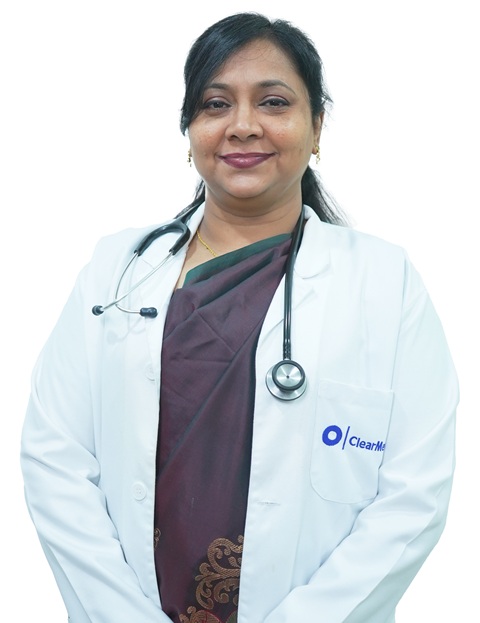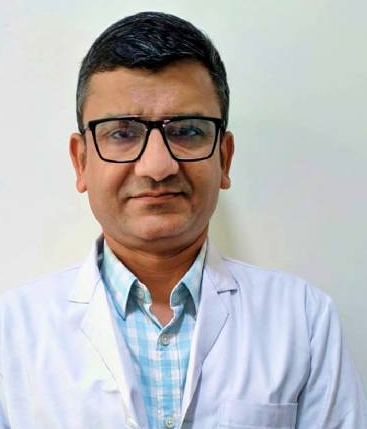12 Best Home Remedies to Remove Pimples (Acne) Naturally

Quick Summary
Here are three home remedies for pimples that you can try:
- Change your diet. Eating a healthy diet that is rich in fruits, vegetables, and whole grains can help to improve your skin health.
- Use essential oils or herbs. Applying essential oils or herbs to your skin can help to reduce inflammation and promote healing.
- Make lifestyle changes. Reducing stress and getting enough sleep can help to improve your skin health.
It is important to talk to your healthcare provider before starting any new treatments for acne.
Are you concerned about your acne and looking for home remedies for pimples? Acne is a common skin issue that affects people of all ages. It can be caused due to variety of factors, including genetics, hormones, and environmental factors. While there are many over-the-counter and prescription treatments for acne, some people prefer to use natural remedies to help clear their skin.
Home remedies for acne include changes to your diet, using essential oils or herbs, and making lifestyle changes to help reduce stress and improve sleep. These remedies can be effective for some people, but talking to your healthcare provider before starting new treatments is essential. Continue reading this blog to learn more about home remedies for pimples.
What are Pimples or Acne?
Acne, also known as pimples, is a common skin condition characterised by the appearance of red, inflamed lesions on the skin. It is most commonly found on the face, chest, and back.
Acne is most common during puberty but can affect people of all ages. It is not a severe medical condition but can cause physical and emotional discomfort.
Acne generally occurs when the skin's pores become clogged with oil, dead skin cells, and bacteria. This can lead to the development of blackheads, whiteheads, and pimples. However, there are other factors as well which cause pimples or acne. Some of these include.
This blog will explore more about home remedies for pimples, so keep reading.
- Hormonal changes: During puberty, hormones such as testosterone and estrogen increase in the body, producing excess oil (sebum) in the skin. This can cause the pores to become clogged, leading to the development of acne.
- Genetics: Some people are more prone to developing acne due to their genetic makeup.
- Certain medications: Some medications, such as corticosteroids and lithium, can increase the risk of developing acne.
- Certain cosmetics and skin care products: Using specific skincare and makeup products that are oil-based or contain pore-clogging ingredients can contribute to the development of acne.
- Diet: Some research suggests that a diet high in processed foods, dairy products, and refined sugars may increase the risk of developing acne.
- Stress: Stress can trigger the production of certain hormones that can lead to the development of acne.
- Environmental factors: Exposure to pollutants and other irritants in the environment can also contribute to the development of acne.


Benefits of Home Remedies for Pimple and Acne
Let’s know more about acne treatment at home, but before that, let’s glance over its benefits. It's important to note that not all home remedies will work for everyone, and some may be more effective than others based on the individual.
As with any new skincare regimen, it's always a good idea to consult a healthcare provider or dermatologist before trying new treatments. Here are some potential benefits of using home remedies for pimples and acne:
- Natural ingredients: Many home remedies use natural ingredients which can be gentle on the skin and less likely to irritate compared to some harsher chemicals found in commercial acne products.
- Affordable: Home remedies can be inexpensive to treat acne, especially compared to expensive prescription medications or professional treatments.
- Easy to find: Many ingredients used in home remedies can be found in your kitchen or at your local grocery store, making them accessible and convenient.
- Customisable: Home remedies can be tailored to your skin type and concerns, allowing for a more personalised approach to acne treatment.
- It may have multiple benefits: Some natural ingredients used in home remedies have additional benefits beyond treating acne, such as anti-inflammatory or antioxidant properties.
- Fewer side effects: Home remedies may have fewer side effects than prescription medications or harsher acne treatments.
- Sustainable: Many home remedies for acne are environmentally friendly, use biodegradable ingredients and are not harmful to the planet.
Home Remedies for Pimples and Acne
Several home remedies for pimples help in acne treatment at home and may aid in reducing acne's appearance and improving the skin's overall health. It is important to remember that what works for one person may not work for another, and it may take some trial and error to find the best solution for your skin.
Here are some home remedies that may be worth trying:
- Apply green tea to the skin: Green tea has natural antibacterial and anti-inflammatory properties that may help reduce acne's appearance. To use green tea, brew a cup of tea and let it cool, then use a cotton pad to apply the cooled tea to the affected area.
- Aloe vera: It is a common ingredient in skincare products because of its calming and moisturising qualities.
When applied topically to acne-prone skin, aloe vera can help reduce inflammation, redness, and swelling and may also have antibacterial properties that can help kill acne-causing bacteria. - Turmeric: Curcumin, an ingredient in turmeric, has both anti-inflammatory and antioxidant properties. When applied topically to the skin, turmeric may aid in reducing inflammation and redness associated with acne.
- Neem: Neem is a herb commonly used in traditional Ayurvedic medicine. It has antibacterial and anti-inflammatory properties, which can help treat acne. When applied topically, neem can help kill acne-causing bacteria, reduce inflammation, and soothe irritated skin.
- Spot treat with diluted tea tree oil or rubbing alcohol: Tea tree oil and rubbing alcohol have natural antibacterial properties that may help kill bacteria that contribute to the development of acne.
- To use tea tree oil, dilute a few drops in a carrier oil (such as jojoba or almond oil) and apply it to the affected area using a cotton swab.
- To use rubbing alcohol, dilute a small amount in water and apply it to the affected area using a cotton pad.
- Honey and cinnamon mask: Honey and cinnamon have natural antibacterial and anti-inflammatory properties that may help reduce acne's appearance.
- To make a mask, mix honey and cinnamon to form a paste, then apply it to the affected area and leave it on for 10-15 minutes.
- Rinse off with warm water and pat the skin dry.
- Apple cider vinegar toner: Apple cider vinegar has natural antibacterial and astringent properties that may help to kill bacteria and tighten the pores, reducing the risk of acne.
- To use an apple cider vinegar toner, mix equal parts apple cider vinegar and water in a small spray bottle.
- Mist the toner onto the skin after cleansing and follow up with a moisturiser.
- Baking soda and water paste: Baking soda has natural exfoliating and antibacterial properties that help to unclog pores and reduce the appearance of acne.
- Use a tiny amount of baking soda and water to make a paste, apply it to the affected region, let it sit for a few minutes, and then rinse it off with warm water.
- Ice cube: Applying an ice cube to the affected area can help to reduce inflammation and redness associated with acne.
- To use an ice cube, wrap it in a clean cloth or paper towel and apply it to the affected area for a few minutes.
- Be sure to wrap the ice cube to avoid direct contact with the skin, which can cause frostbite.
- Clay mask: Clay masks can help to absorb excess oil and remove impurities from the pores, reducing the risk of acne. Many clay masks are available, including green clay, kaolin clay, and bentonite clay. Follow the instructions on the product label for the best results.
- Steam treatment: Steam can help to open up the pores and remove excess oil and debris that can contribute to the development of acne.
- To use a steam treatment, fill a bowl with hot water and hold your face over the bowl, draping a towel over your head to create a tent.
- Close your eyes and breathe in the steam for 10 to 15 minutes, then rinse your face with cool water and pat it dry.
- Use over-the-counter acne treatments: Many over-the-counter acne treatments contain ingredients such as benzoyl peroxide and salicylic acid, which can help to kill bacteria and reduce inflammation.
These products can be found in the form of cleansers, toners, and spot treatments, and they are generally safe and effective when used as directed.
Following these home remedies and maintaining a healthy skincare routine can help reduce acne's appearance and improve your skin's overall health. It is essential to be patient and consistent, as it may take some time to see results.
If your acne persists or becomes severe, it is a good idea to consult a dermatologist for further treatment.
Skincare Tip to Prevent Pimple or Acne
You must have understood some home remedies for acne scars till now. Maintaining clear and healthy skin can be a constant battle, especially for those prone to pimples or acne. While many acne treatment at home is available to help manage these conditions, prevention is often the best approach.
In addition to using gentle skincare products and avoiding harsh chemicals, there are several simple tips you can add to your everyday routine to help prevent pimples and acne from forming in the first place.
There are several steps you can take to help prevent the development of acne, along with following home remedies for acne scars:
- Wash your face twice daily with a gentle cleanser: Proper cleansing is essential for removing excess oil, dirt, and debris from the pores, which can help to prevent acne.
Choose a cleanser formulated for your skin type, and avoid using harsh or abrasive products, as these can irritate the skin and worsen acne. - Use non-comedogenic makeup and skincare products: Non-comedogenic products are formulated to be less likely to clog pores and cause acne.
Look for the term "non-comedogenic" on the skincare and makeup products label to ensure that they won't contribute to the development of acne. - Apply a natural, oil-free moisturiser: Moisturising the skin is essential for maintaining health and preventing dryness, which can worsen acne. Choose an oil-free moisturiser that is formulated for your skin type.
- Avoid touching your face: Hands come into contact with many bacteria and other contaminants throughout the day, and touching your face can transfer these to your skin, increasing the risk of acne.
Avoid resting your chin, cheek, or forehead on your hand and picking at pimples. - Keep your hair clean: Oils and other products used on the hair can transfer to the skin, contributing to the development of acne. Be sure to wash your hair regularly and avoid using heavy, greasy hair products.
- Avoid picking at pimples: It can be tempting to pick at pimples, but this can make acne worse and lead to scarring. Instead, resist the urge to pick and allow the pimples to heal independently.
- Avoid wearing tight clothing: Tight clothing can trap sweat and oil against the skin, increasing the risk of acne. Choose loose, breathable clothing and avoid wearing tight hats or headbands that can trap sweat against the skin.
Lifestyle Changes
Lifestyle factors can play a significant role in developing pimples and acne. Poor diet, stress, and lack of sleep are just a few examples of lifestyle factors that can contribute to acne-prone skin. Simple lifestyle changes improve your skin health and prevent breakouts.
- Eat a healthy diet: A diet high in processed foods, dairy products, and refined sugars may increase the risk of acne. Instead, focus on eating various fruits, vegetables, and lean proteins, which can help nourish the skin and support overall health.
- Stay hydrated: Drinking plenty of water can help to flush toxins from the body and keep the skin hydrated, which can help to prevent acne. Aim to drink at least 8-10 cups of water per day.
- Manage stress: Stress can trigger the production of certain hormones that can lead to the development of acne. Find healthy ways to manage stress, such as exercising, meditation, or talking to a therapist.
- Get plenty of sleep and manage stress: Getting enough sleep and managing stress can help improve the skin's overall health and reduce the risk of acne.
Try to get at least 7 to 8 hours of sleep per night and find healthy ways to manage stress, such as through exercise, meditation, or talking to a therapist.
When to Consult a Doctor?
While mild to moderate cases of acne can often be managed with over-the-counter treatments and home remedies, it's essential to know when to consult a doctor. Given below are a few signs that you may need to seek medical attention for your acne:
- Severe or persistent acne
- Scarring or pigmentation changes
- Painful or cystic acne
- Emotional distress
Takeaway
In conclusion, pimples and acne can be frustrating and sometimes painful skin conditions that can significantly impact our self-esteem and quality of life. While many over-the-counter treatments and home remedies are available to help manage acne, prevention is often the best approach. Simple lifestyle changes such as eating a healthy diet, managing stress, and getting enough sleep can improve skin health and prevent breakouts.
However, if you have severe or persistent acne, it's essential to consult with a dermatologist for personalised treatment recommendations to help manage your acne and improve your skin health. If you or your loved ones have doubts about home remedies for pimples, contact our team of experts at HexaHealth. Our expert team of experts can consult you and treat you properly. Get in touch with us TODAY!Frequently Asked Questions
What are the home remedies for pimples?
What are the home remedies for acne?
How acne can be treated at home?
What are the best home remedies for acne scars?
How remove pimples at home fast?
How can we remove pimples naturally?
How can I get rid of pimples overnight?
What shrinks acne fast?
What is the best home remedy for acne overnight?
How long does acne and pimples last?
What food to avoid to get rid of acne, acne scars and pimples?
What immediately gets rid of acne?
Can acne be cured naturally?
Can acne and pimple go away by their own?
What are the best home remedies for acne and pimples?
Home remedies for acne and pimples include applying tea tree oil, aloe vera, honey, and apple cider vinegar to the affected area, using a turmeric mask, and washing the face with a gentle cleanser twice a day.
It's important to note that not all remedies work for everyone, and consulting with a dermatologist is recommended for severe acne.
What are the home remedies for back acne?
Home remedies for back acne include showering regularly, avoiding tight clothing, using gentle, fragrance-free body washes, exfoliating with a loofah or gentle scrub, applying tea tree oil or aloe vera to the affected area, and avoiding picking or squeezing the acne.
Maintaining a healthy diet, staying hydrated, and managing stress can also help prevent back acne.
What are the home remedies for face acne?
What is an acne solution at home?
What is good for acne scars home remedies?
What is the best home remedy for acne?
The best home remedy for acne varies from person to person, but some popular options include using tea tree oil, applying a honey and cinnamon mask, using aloe vera gel, applying a turmeric face mask, and using apple cider vinegar as a toner.
It's important to note that what works for one person may not work for the other, and it's always best to see a dermatologist for personalised advice.
Last Updated on: 23 October 2023
Reviewer

Dr. Priyanka Sharma
MBBS, DNB Plastic Surgery, Training in Hand and Microvascular Surgery, Training in Hair Transplant
15 Years Experience
Dr Priyanka Sharma is a highly regarded Plastic, Reconstructive, and Aesthetic Surgeon with over 15 years of experience.
She is currently associated as a Consultant with:<...View More
Author
HexaHealth Care Team
HexaHealth Care Team brings you medical content covering many important conditions, procedures falling under different medical specialities. The content published is thoroughly reviewed by our panel of qualified doctors for its accuracy and relevance.
Expert Doctors (10)
NABH Accredited Hospitals (5)
Latest Health Articles
Related Treatments






















 Open In App
Open In App